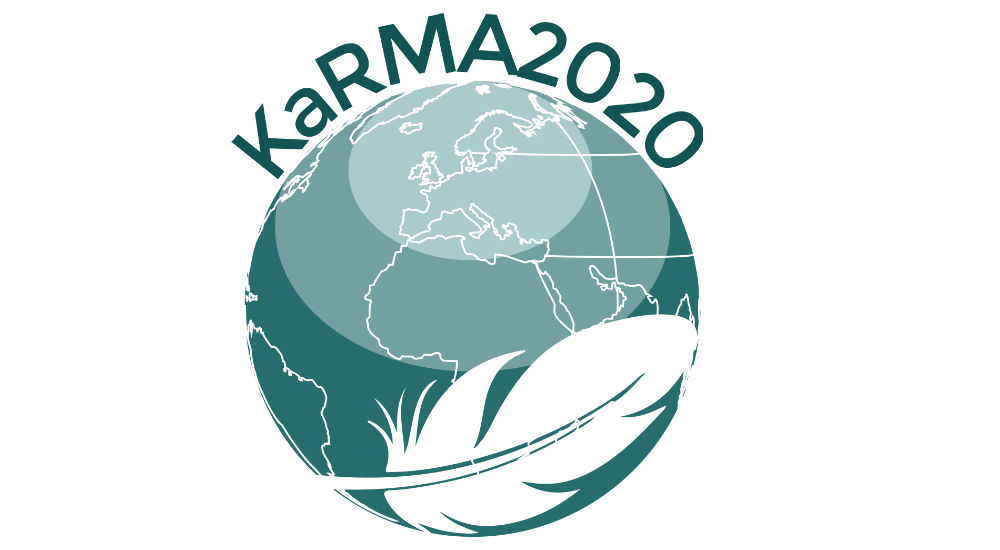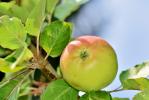
H2020 Project KARMA2020: Valorization of industrial feather waste for sustainable materials based on KeRatin
- Type Project
- Status Filled
- Execution 2017 -2019
- Assigned Budget 5.880.471,38 €
- Scope Europeo
- Main source of financing Horizon 2020
- Project website KARMA2020
During the KaRMA2020 project, the feather waste stream generated in poultry slaughterhouses has been valorized using various technologies tailored to their end applications. The consortium has solved some of the key problems associated with handling and treating feathers for use as valuable raw material. Key achievements include the development of a range of feather-derived raw materials, such as keratin hydrolysate, bioplastics, flame retardants, thermosetting resins, and nonwoven fabrics. As part of the project, humins, a byproduct of the sugar dehydration process, have also been incorporated into the value chain.
Initial laboratory-scale experiments have been replaced by pilot and industrial demonstrations, final product validation, and feasibility studies to ensure the implementation of innovative technologies. The potential of conversion technologies for down processing has been assessed in terms of feasibility, scalability, and cost-competitiveness. This assessment led to the selection of the most suitable technologies for the industrial manufacture of down-based raw materials. The scaling up of the different conversion technologies has been achieved by combining simulation software tools with pilot trials to produce down-based raw materials using technologies such as steam explosion, melt extrusion, spunbonding, and chemical conversion.
As a result, five different feather-based products have been manufactured and validated to the same standards as their petroleum-derived counterparts: trays for food packaging, fertilizers (including controlled-release fertilizers, CRFs), flame retardants (FRs) for PU-coated textiles, FR paints, and thermosetting composites. In terms of performance, most met more than 90% of the application requirements, and in some cases, the new product even outperformed them.
KaRMA2020 end products could replace fossil-based materials in some applications. Depending on the end product, the reduction in the use of fossil fuels ranges from 30% to 100%. These KaRMA2020 products could be guaranteed bio-based in the future through the corresponding "OK BIO-BASED" certification.
In addition to these new developments, the environmental impact of the project's technologies, processes, and materials has been assessed to ensure a lower carbon footprint. Along with this assessment, KaRMA2020 has developed a comprehensive waste management strategy that covers waste generation throughout the project's entire value chain and potential recovery pathways.
As part of the communications strategy, visual identity and communication materials (brochure, prospectus, website, etc.) were created, and 10 publications related to the KaRMA2020 results were disseminated. Furthermore, as part of the business plan, an in-depth market analysis was conducted, and the most appropriate ways to exploit KaRMA2020's innovations were proposed.
Finally, in recognition of the project’s innovations, KaRMA2020 received several awards, such as the SPIRE Award “2017-EU Process Industry Conference” as the most inspiring project, in addition to the Gold Medal with Special Mention of the Jury and the special award of the Joint Stock Company Design & Research Institute for Information Technology, Signaling and Telecommunication on Railway Transport JSC NIIAS, Russia, for the invention “Hydrophobic feathers based on nonwoven fabrics obtained by the spun-bonded technique” and the Gold Medal of the INNOVA 2019 Fair.
The poultry industry generates enormous amounts of waste each year. Worldwide, 24 billion chickens are consumed annually, and around 8.5 billion tons of poultry feathers are produced. According to the European Commission, 13.1 million tons of poultry meat were produced in the European Union (EU-28) alone in 2014, with an estimated generation of 3.1 million tons of feather waste.
Despite their widespread availability, the use of feathers as a raw material in industrial applications in Europe is still very limited. As a result, currently, most poultry feathers are disposed of in landfills, incinerated, or a small portion is converted into animal feed of low nutritional value. Disposing of feathers in landfills or incinerators will become increasingly problematic in the future.
Therefore, the development of alternative industrial conversion methods and exploitation strategies for poultry feathers will not only increase their value as a raw material, but will also reduce the environmental impact and health risks associated with their disposal, in accordance with the directives on landfill waste (Council Directive 1999/31/EC of 26 April 1999 and Directive 2000/76/EC).
In this context, the objective of the KaRMA2020 Project is the industrial production and exploitation of sustainable raw materials from feather waste to develop innovative, eco-friendly products for high-impact, cross-sector markets.
To achieve this main objective, the following steps have been followed:
- Improve pretreatment and conditioning processes for feather waste
- Optimizing the insulation of keratin and other feather-based raw materials
- Validate feather-based raw materials for bio-based end products
The use of efficient conversion technologies for feather processing, combined with the development of keratin-based products for high-impact sectors such as fertilizers, biodegradable food packaging, technical coatings for textiles, and bio-based thermosetting compounds, will enable the large-scale manufacturing of feather-based raw materials, enabling their commercialization at a competitive cost.
According to the European Commission, 13.1 million tonnes of poultry meat were produced in the European Union (EU-28) alone in 2014, with an estimated 3.1 million tonnes of feather waste generated. Currently, most poultry feathers are converted into low-nutritional-value food or disposed of in landfills, creating environmental and health risks.
In this context, the overall objective of KaRMA2020 is the industrial exploitation of these underutilized waste materials to obtain value-added raw materials for the chemical sector: keratin, bioplastics, flame-retardant coatings, bio-based nonwovens and thermoset resins. This will be achieved through: i) innovative and sustainable approaches (already patented by some of the KaRMA2020 partners), or ii) conventional and cost-effective techniques.
The raw materials obtained will be manufactured on an industrial scale and subsequently used to produce new bio-based products, such as slow-release fertilizers, biodegradable plastics for food packaging, flame-resistant coated textiles, and flame-resistant bio-based thermoset composites. The sustainability of the new raw materials and final products will be assessed through a life cycle assessment (LCA). In addition, a comprehensive waste management plan will be developed to minimize the environmental impact of waste.
Communication and knowledge transfer, as well as a detailed business plan, will maximize the overall profitability of KaRMA2020.
The balanced composition of the consortium, which includes industry, R&D entities, and academia, guarantees KaRMA2020 the best chances of success.
Within the framework of the KaRMA2020 project, the consortium has developed specific technologies for converting feathers into new raw materials. This conversion has been achieved through: i) innovative and sustainable approaches (already patented by some of the KaRMA2020 partners) and ii) conventional and cost-competitive technologies.
Most of these technologies have proven their effectiveness at laboratory scale. Their scale-up potential has been evaluated, and the most suitable technologies for pilot-scale processes have been selected.
Thanks to the innovative potential of KaRMA2020, the project has demonstrated the following significant impacts:
- Technical impact, through the optimization of feather processing methods, from laboratory to industrial scale. Two patents have been applied for during the project: one related to the conversion of feathers into bioplastics and another on the use of keratin in refractory materials.
- Industrial impact, through the manufacture of raw materials of biological origin and the production and validation of final products.
- Environmental impact, through the assessment of the environmental impact of new developments and the development of an appropriate waste management strategy.
- Economic impact, through the promotion of innovative applications and products with increased value from current waste and the creation of new business opportunities for industrial partners.
- Social impact, by increasing market impact for both end users and manufacturers, facilitating the introduction of environmentally friendly, non-petroleum-dependent raw materials. Furthermore, new business opportunities have been created for the industrial partners involved.
- FUNDACION CIDETEC (CIDETEC)







